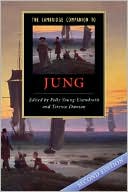

 |

|

The average rating for Companion to Jung based on 2 reviews is 5 stars.
Review # 1 was written on 2019-01-13 00:00:00 Dimitrios Tagis Dimitrios TagisYoung-Eisendrath does a marvelous job at what she set out to do; making a companion that's different from all the so-called "introductions Jung" that have proliferated over the last couple decades. Instead of setting out to explain Jung to the uninitiated, and therefore diluting the concepts to a point that threads closely to ridicule, the Cambridge Companion paints a general, but high resolution picture of the Jungian approach today, including where the approach comes from, the schools within analytical psychology, the debate between them (as well as debate within them). Furthermore, the Cambridge Companion sets out to carefully analyze the importance of Jungian thought in society, politics, and religion in an unassuming, brutally honest way. This is especially evident in chapter 13, "Literary criticism and analytical psychology", which gives an interesting point of view and a profound self-critique on why Jungian ideas, investigation, and texts have been relegated to the fringes of either psychology or literary analysis. However bleak the picture it paints, it is also hopeful and proposes how to remedy this situation, as well as observes that some jungian authors have already started toying with these ideas. The book does a good job at explaining central Jungian concepts; while this is not its main goal by far, each author clarifies the meaning of each concept according to their own understanding of it, and always applied to the topic of the essay they present us with. This provides the reader with multiple definitions that never feel repetitive, each threading on the previous one, but adding a new, original dimension as well. As this book is a compilation of essays by different authors, the flow is far from uniform; some authors have a very conducive style that makes reading quite enjoyable and quick, while others are rather dark and slow to read. However, the content of the different essays is never but once disappointing or predictable. The sad exception is chapter 14, "Jung and politics", which is evidently driven by postmodern political ideology. The chapter is self-righteous, and therefore quick engage in judgement of Jung's character, instead of tackling down the ideas that, according to the author, are dangerously naive. Best chapter in the book: #9 Me and my anima: through the dark glass of the Jungian/Freudian interface. Worst chapter in the book: #14 Jung and politics |
Review # 2 was written on 2021-03-07 00:00:00 Cindy Maslen Cindy MaslenThis collection of essays gives a great overview of not only Jung's own thought, but also the ways later theorists and clinicians have engaged with his thought. Interesting reformulations are presented based on more contemporary views on gender, politics and religion, resulting in fascinating work. Not all essays are equally enlightening, but there are some true gems in there. Highly recommend to anyone looking for an accessible yet thorough introduction to analytical psychology! |
CAN'T FIND WHAT YOU'RE LOOKING FOR? CLICK HERE!!!